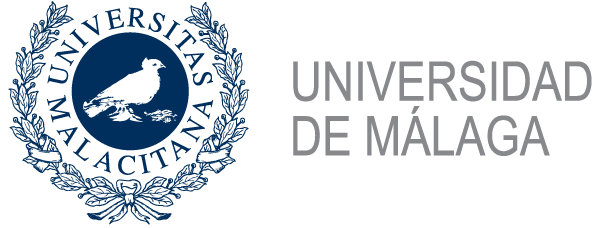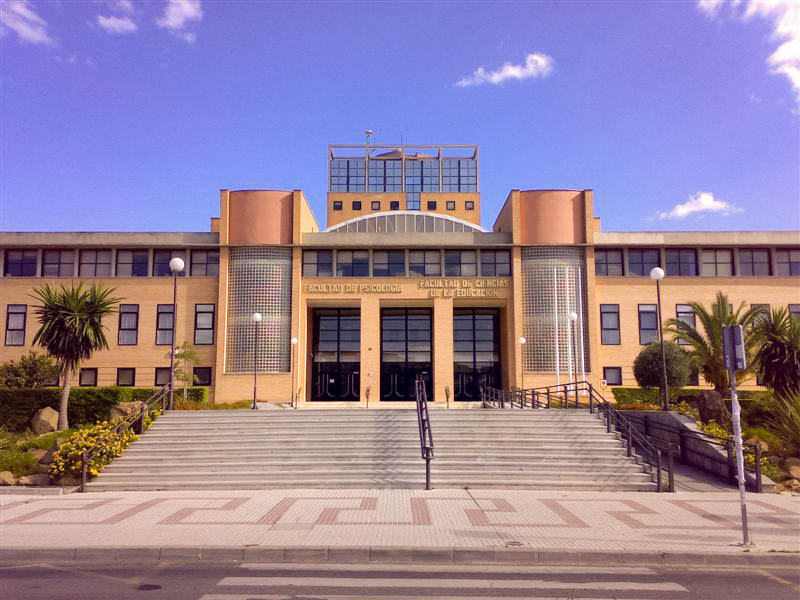Universidad de Málaga
One of Spain’s premiere institutions working to provide the adequate educational setting for testing the guide and incorporating good reading habits and practices.


Presence & Prestige
The University of Malaga (UMA) is one of Spain’s premiere institutions of higher learning (world ranking: 736) [2016]. Since its foundation back in 1972, UMA has rapidly expanded its international presence and prestige. Currently, UMA has 2 campuses (1.797.247 m2), +35,000 students, +2,400 professors, 23 faculties and schools, 82 departments, 200 educational programmes (incl. 68 undergraduate, 75 master and 34 phd), 309 research groups, research projects (425 national / 150 EU [2007-2016]), and +1,800 business contacts.
Regarding international relations, UMA has bilateral agreements with +945 universities from all over the world (Europe, Iberoamerica, North Africa, Asia, USA/Canada, Australia, New Zealand, Japan, South Korea, etc.) with +1,000/+1,000 exchange students (in/out)/year and +100/+100 exchange staff (in/out)/year. UMA participates actively in a number of international programmes (LLP, Erasmus Mundus, Tempus, Erasmus+, ISEP, Fulbright, AUIP, etc.), national/regional programmes (Spanish Ministry of Education, Regional Gov, Talentia, ICEX, etc.), and privately-funded programmes (Santander, Universia, Caixa, Caja Madrid, etc.), all of them managed by the Unit of International Affairs & Cooperation (UIAC). UMA is member of +100 networks/associations.
The quality of its professors and research groups
In order to provide the adequate educational setting for testing the guide and incorporating good reading habits and practices focused by the project and to select a group of teachers and educators for the Internal Teacher’s Meetings and Workshops (ITMW) aimed to exploit the Curriculum, UMA will avail itself with some Institutes belonging to its usual local working network that figure as an associated partners.
UMA stimulates educational innovation and research by boosting the quality of its professors and research groups through their participation in international research projects – managed by OTRI (Research Results Transference Office) – with the support and sponsorship of enterprises from local TechPark (PTA). The university has a dedicated career center which fosters the employability of students and young researchers by offering a wide services portfolio including academic/professional counselling, paid internships/fellowships, etc. UMA meets the following quality standards: EFQM 200, EFQM 300, ISO 9001, ISO 14001, etc. UMA is also part of the “Andalucia Tech” campus of excellence.
What are the experience of the organisation?
Since University of Malaga was established in 1972 it has continued to enlarge and diversify its research and academic activities, with special regard to the transnational and international ones. UMA indeed has a fully integrated international working networks, which include +550 universities from all over the world where by it has realized many different types of activities funded not only by several international programmes such as LLP, Erasmus Mundus, Tempus, Erasmus+, etc, but also by different kind of national/ regional programmes or by privately-funded programmes. Therefore UMA has gained a long and effective experience in managing granted projects, with special regard to those which have an international dimension. For a better overseeing to this kind of activities UMA has available a specific Unit of International Affairs & Cooperation (UIAC) equipped with high standard professionals. They will give administrative support to the project.
What are the members skills?
─ Dr. Dolores Madrid (Coordinator) ─
Member of the Research Group HUM205 of the Andalusian Plan of Research of the Junta de Andalucía, of which I am the researche principal since 2011. I have participated in 10 research projects. I Currently, in the research project “DREAM” (c2016-1-IT02- KA201-024123) funded by EU Erasmus + KA2. Teacher Holder of a university, with a long teaching experience in training of Early Childhood Education professionals. Since 2013 member of the Team of Address of the Faculty of Educational Sciences.
─ Dr. Rocio Pascual ─
Works in the Teacher Training Centre as a consultant for children’s education and at the University of Malaga as a teacher in the department of teaching and school organization.
Her main line of research is reading, family and teaching methodology. His doctoral thesis “Influence of methodologies, early age and family participation in reading learning of children from Malaga” (2015). Tried to deepen the fundamental issues of this debate with the intention of drawing conclusions related to attitudes and reading habits of families, its impact on the development of the reading competence of the students, as well as the methodologies that best affect teaching practices suitable for reading learning of children in the last year of Early Childhood Education and the first year of Primary Education. Among the conclusions, it should be noted that the reading level of the children studied was better in those whose family habits and attitudes were more favorable.
Member of the Research Group HUM205 of the Andalusian Plan of Research of the Junta de Andalucía, of which I am the researche principal since 2015. Currently, she participates as a researcher in the “DREAM” project, Development and Run-test of and Educational Affective Model, Erasmus + KA2 Education.
─ Dr. Inmaculada Santos ─
She works at the Department of Language Didactics. She is Provincial Reading and School Library Coordinator of the Local Educational Authority of Malaga. She holds a PhD in Educational Innovation and she is eTwinning ambassador from 2015. Her area of specialization is linguistics applied to language teaching where she has extensive training (three masters, C1 in English and French, B2 in Italian and Arabic).
She has lectured numerous congresses in Spain and abroad. She has participated in different European activities: study visits, teaching mobility, professional linguistic stays, contact seminars, etc.
─ Dr. Mª Mar Gallego ─
Working as an in-service Teacher Trainer in the Teacher Training Centre of Málaga. She is in charge of organising teacher´s programmes for training and working directly with schools, and in the other hand, preparing aspects of the organizations of management teams in schools.
She has been the coordinator of an European Project (KA201-02455). She is also a part time Associated Teacher at the University of Malaga, in the Department of Theory and History of Education and MIDE, where she teaches students who want to become Primary and Secondary teachers. Her doctoral thesis “Evolution of the reading-writers methods (1970 – 2013)” in the year 2016. It tries to explain the underlying reality: curricular treatment of literacy and importance of the materials used.
The Activities
As a requesting center, the faculty of Educational Sciences provides as a genuine value to the project the ability to specify training models contextualized in the practice centers; in addition to direct participation in specialized tasks within the project. The UMA participates in this project with three large groups of activities:
- Manage the project in its role as coordinating partner and supervision with the tasks that will be described later.
- Know and experience training models that help to implement teaching models based on good practices observed by partner centers.
- Introduce explicitly in our program of practices aspects that allow students tools to work with children especially with the most disadvantaged students, immigrants and their families.

The Reading Toolkits
Starting from the results gained by comparative survey and taking intoaccount what defined within the Pedagogical Framework.


